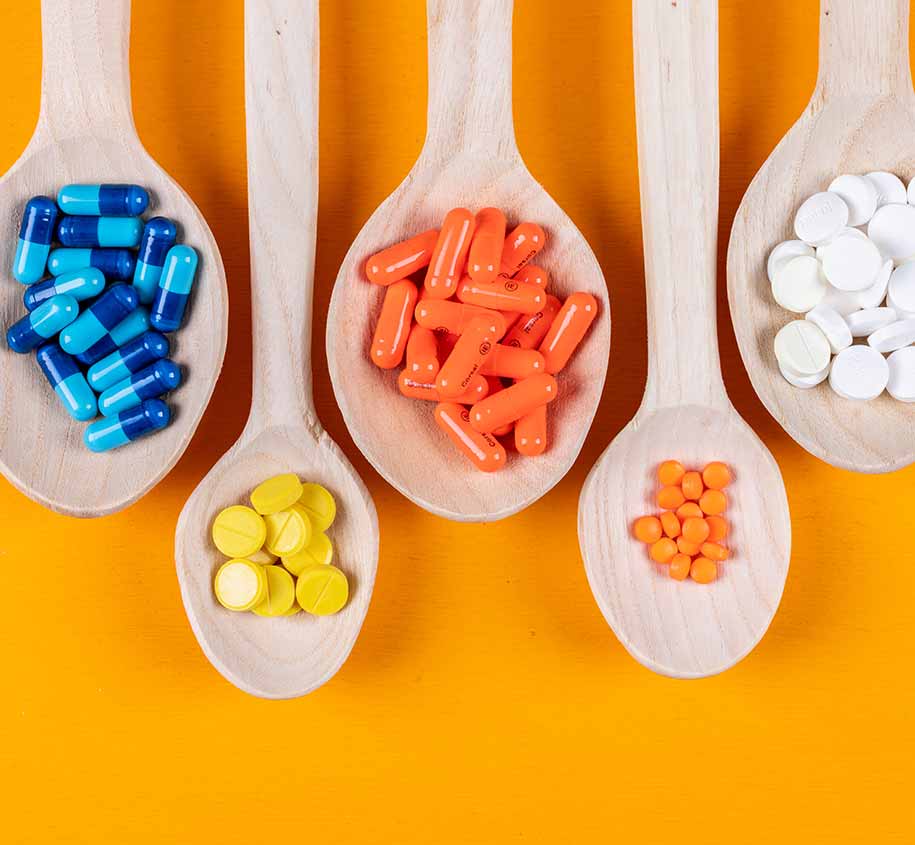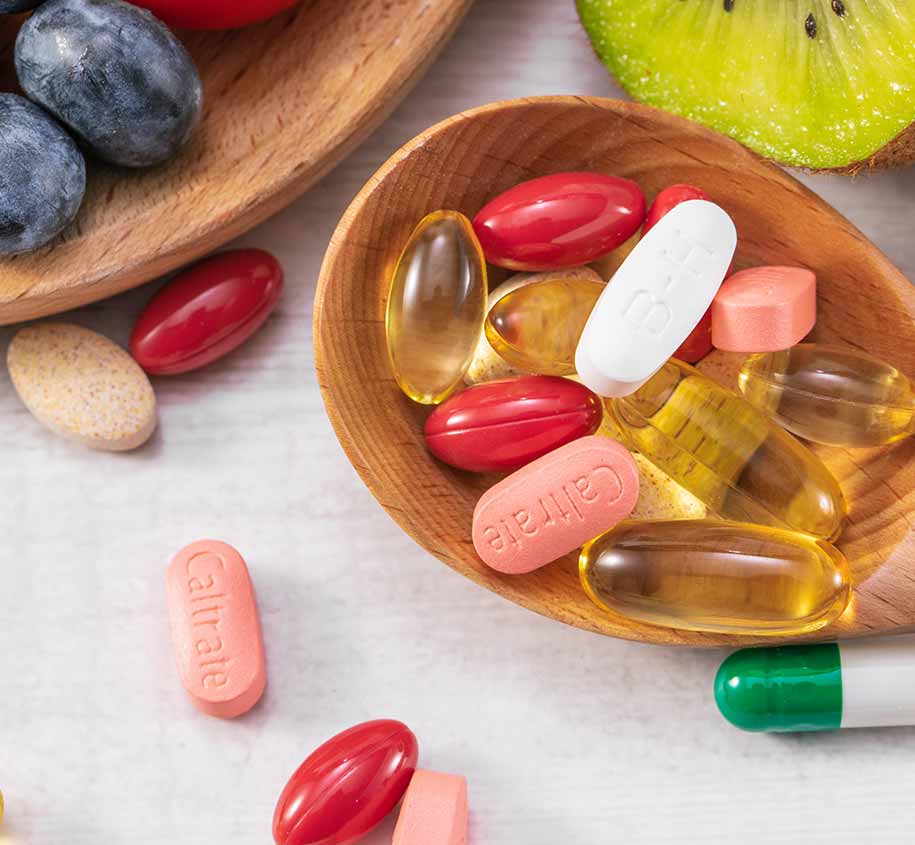Diving into nutrition, it’s clear that vitamins are our allies in staying healthy. These tiny organic heroes are must-haves for keeping us running, but our bodies can’t whip them up in enough quantities. So, grabbing them through what we eat is a no-brainer.
Getting the lowdown on what vitamins are and how they’re sorted can really shine a light on why we should care about them every day.
What Are Vitamins?
Imagine vitamins as the unsung heroes in our bodies, pulling the weight behind the scenes for countless vital tasks. They’re the backbone for keeping our health in check, from making sure we can see clearly to keeping our bones tough and our defense system ready to battle germs.
The journey to understanding vitamins and minerals is like a blockbuster movie, full of discoveries and turning points that changed the game for public health.
“Vitamin” became a buzzword in 1912, kicking off a century-plus of nutritional discoveries. Unraveling the mysteries of vitamins led to beating diseases like scurvy and rickets, showing just how game-changing these nutrients are.

What are Vitamins?
Imagine vitamins as the unsung heroes in our bodies, pulling the weight behind the scenes for countless vital tasks. They’re the backbone for keeping our health in check, from making sure we can see clearly to keeping our bones tough and our defense system ready to battle germs.
The journey to understanding vitamins and minerals is like a blockbuster movie, full of discoveries and turning points that changed the game for public health.
“Vitamin” became a buzzword in 1912, kicking off a century-plus of nutritional discoveries. Unraveling the mysteries of vitamins led to beating diseases like scurvy and rickets, showing just how game-changing these nutrients are.

Why Vitamins Are Key Players
Vitamins are like the backstage crew in a play, making sure everything runs smoothly. They help make the stuff our bodies need to work properly, like enzymes and hormones, and give us the get-up-and-go we need.
They’re also the repair guys, fixing up cells, keeping our skin in tip-top shape, and making sure our immune system is strong enough to fend off the bad guys like diseases and infections.
Breaking Down Vitamins: The Two Types
How vitamins work their magic depends on whether they mix well with fat or water, which plays into how our bodies soak them up and keep them stored.
The Fat-Soluble Vitamins
Vitamin A: The superhero for your eyes, immune system, and skin.
– Where to Find It: Liver, carrots, and spinach.
Vitamin D: The bone buddy, helping you absorb calcium.
– Where to Find It: Sunshine, fish oils, and foods that have a vitamin boost.
Vitamin E: The cell protector, fighting off damage.
– Where to Find It: Veggie oils, nuts, and leafy greens.
Vitamin K: The healer, making sure cuts stop bleeding and bones stay strong.
– Where to Find It: Leafy greens, fish, meat, and eggs.
The Water-Soluble Vitamins
B-Complex Vitamins: The energy boosters, DNA fixers, and nerve protectors.
– Where to Find Them: Grains, meats, fruits, and veggies.
Vitamin C: The immune booster, iron helper, and another cell protector.
– Where to Find It: Citrus fruits, strawberries, bell peppers, and broccoli.
Getting why these nutrients are such big deals helps us aim for a diet that’s as varied and colorful as a veggie market. Mixing up our meals to cover all these bases is the trick to feeding our bodies what they need to stay happy and healthy.

Minerals and Multivitamins: The Full Picture
Just as vitamins are the body’s builders and protectors, minerals are the unsung heroes keeping our systems in check. They’re like the steady hands guiding everything from how our hearts beat to how our muscles move.
An in-depth look at vitamins and minerals tells us this: when it comes to staying healthy, it’s not just about vitamins; minerals are just as crucial.
Minerals: Building Blocks for a Healthy Body
Minerals are these cool, inorganic elements that make sure everything in our bodies runs as it should. They’re involved in everything from making our bones strong to ensuring our heart beats the way it’s supposed to.
Calcium: The bone and muscle wizard.
– Find it in: Milk, kale, and food with added goodness.
Iron: The oxygen transporter.
– Find it in: Steak, beans, and cereal that’s got a little extra iron.
Magnesium: The muscle and nerve peacekeeper.
– Find it in: Almonds, whole wheat, and spinach.
Potassium: The fluid balance and nerve message sender.
– Find it in: Bananas, spuds, and avocados.
Multivitamins: Are They the Golden Ticket?
We all dream of a perfect diet, but life’s busy, and sometimes we miss out on the nutrients we need. Multivitamins can be like a safety net, catching those who can’t always eat perfectly or who have special diet needs.
Granted, they’re more like a backup singer than the main vocalist in your diet’s band. But they’re undeniably a major boost for most people’s health and nutrition. Fitness enthusiasts need them just as much as their protein powders to grow muscles and stay on top-shape, they’re really just that powerful!

Guiding Our Nutrient Intake
The National Academy of Medicine threw us a roadmap called Dietary Reference Intakes (DRIs) to help us figure out how much of these nutrient superstars we need based on who we are and what stage of life we’re in.
– These guidelines are like a treasure map, showing us how to get the right amount of over 40 nutrients.
– Following this map helps keep us from running low on any nutrient and keeps our health on point.
Getting the Balance Right
Comprehensive vitamin intake guidelines and research agree on one thing: finding that sweet spot of vitamins and minerals is key.
Real food over pills: Aim to get your vitamins and minerals from food first—it’s packed with a mix of nutrients that a pill just can’t match.
Talk to the pros: Thinking about supplements? Check in with a healthcare expert first, especially if you’ve got health conditions or are on medication.
Zooming In on Vitamin D3
Vitamin D3, or cholecalciferol, is one of the key players in the vitamin D team, shining bright in the spotlight for its role in bone, heart, and mood health. We got plenty of Vitamin D3 presentations in our shop, and it’s stayed as one of our client’s favorites for decades.
Why Vitamin D3 Deserves a High Five
Bone Buddy: It’s all about keeping bones strong by helping the body use calcium.
Immune System Cheerleader: D3 gives the immune system a pep talk, helping it fight off the bad guys.
Muscle Coach: It keeps muscles in tip-top shape, lowering the odds of taking a tumble.
Heart Helper: D3 keeps the ticker ticking nicely by keeping blood pressure in check and chilling out inflammation.
Mood Booster: Feeling down? D3 might just help lift your spirits.
Wrapping our heads around the importance of both vitamins and minerals, including the standout role of vitamin D3, not only gives us the knowledge to feed our bodies well but also highlights the incredible journey nutrition science has taken over the years. By eating a varied diet and considering our unique needs, we’re on the path to great health, backed by centuries of discovery.

Vitamin D3: Sunshine, Food, and Supplements
Vitamin D3 is unique because our bodies can make it with a little help from the sun. Yet, not everyone gets enough sunlight due to various factors like where they live, the time of year, or how much sunscreen they use. That’s why it’s also smart to get vitamin D3 from what we eat and possibly supplements.
Getting Your Dose of Vitamin D3
Sun Kissed: The simplest way to boost vitamin D3 is by soaking up some sun, which gets your skin to produce it naturally.
Ocean’s Bounty: Fish with plenty of fats like salmon, mackerel, and sardines are top-notch sources of vitamin D3.
Breakfast Special: Egg yolks also chip in with small but valuable amounts of vitamin D3.
Supermarket Helpers: Many countries add vitamin D to everyday foods like milk, cereal, and orange juice to ensure people get enough.
Supplemental Aid: In places where sunshine is a rare guest, vitamin D supplements can fill in the gaps to keep levels up.
The Right Amount and Deficiency Risks
The amount of vitamin D you need changes with age, health, and how much sun you catch. Not getting enough can lead to bone troubles, a dip in immune power, and a higher chance of chronic illnesses.
To keep vitamin D3 in the green, balance is key—get it from sunshine, your meals, and supplements if needed. A chat with a healthcare pro can help figure out your vitamin D3 status and if a supplement is a good idea.

Vitamin Store North Palm Beach Gardens, Florida
For folks in North Palm Beach, Florida, scoring quality vitamins and supplements is a breeze thanks to yours truly. We’ve been the go-to for health and wellness needs since 1972, offering top-notch products and expertise.
Our store is a literal treasure trove of knowledge and experience in the vitamin and supplement game. Our team can help you navigate our vast selection and help you find exactly what you’ll need for your health journey. Our shelves are packed with vitamins, minerals, nutritional products and all sorts of herbal goodies for a better life.
We’ve won the hearts and trust of our community because we’re dedicated to customer satisfaction and wellness. Give us a call, or visit our store and we’ll help you navigate the ocean of knowledge and products that the best vitamin store in Palms Beach has to offer.
FAQs: Understanding Vitamins
What are vitamins? Vitamins are organic compounds that our bodies need in small amounts to function properly. They are essential for health and well-being, supporting various biological processes including growth, digestion, and nerve function.
Why are vitamins important? Vitamins play critical roles in bodily functions such as immune system support, energy production, and the maintenance of healthy skin, bones, and eyes. They are vital for preventing diseases caused by nutritional deficiencies.
How many vitamins are there, and what are they? There are 13 essential vitamins, which include four fat-soluble vitamins (A, D, E, and K) and nine water-soluble vitamins (eight B vitamins and vitamin C).
What is the difference between fat-soluble and water-soluble vitamins? Fat-soluble vitamins (A, D, E, K) are stored in the body’s fatty tissue and liver, whereas water-soluble vitamins (B vitamins and C) are not stored in the body and must be replenished regularly.
Can you overdose on vitamins? Yes, particularly with fat-soluble vitamins, since the body stores them. High doses of vitamins, especially when taken through supplements, can lead to toxicity and health issues.
How can I get enough vitamins? A balanced diet that includes a variety of fruits, vegetables, whole grains, and lean proteins is generally sufficient to meet your vitamin needs. In some cases, supplements may be recommended by a healthcare provider.
Do I need to take vitamin supplements? Not everyone needs to take supplements. It depends on your dietary intake, health status, age, and specific conditions like pregnancy. Consult with a healthcare professional to determine if supplements are necessary for you.


